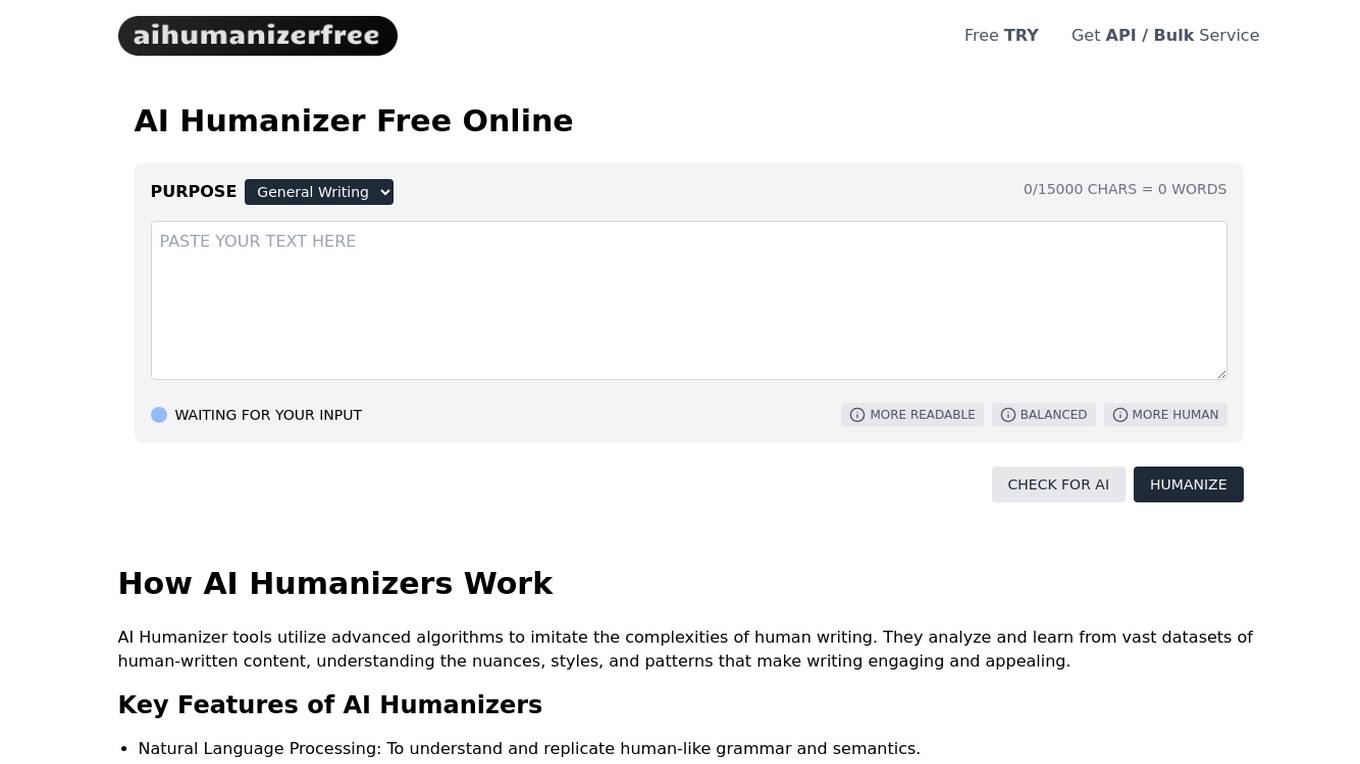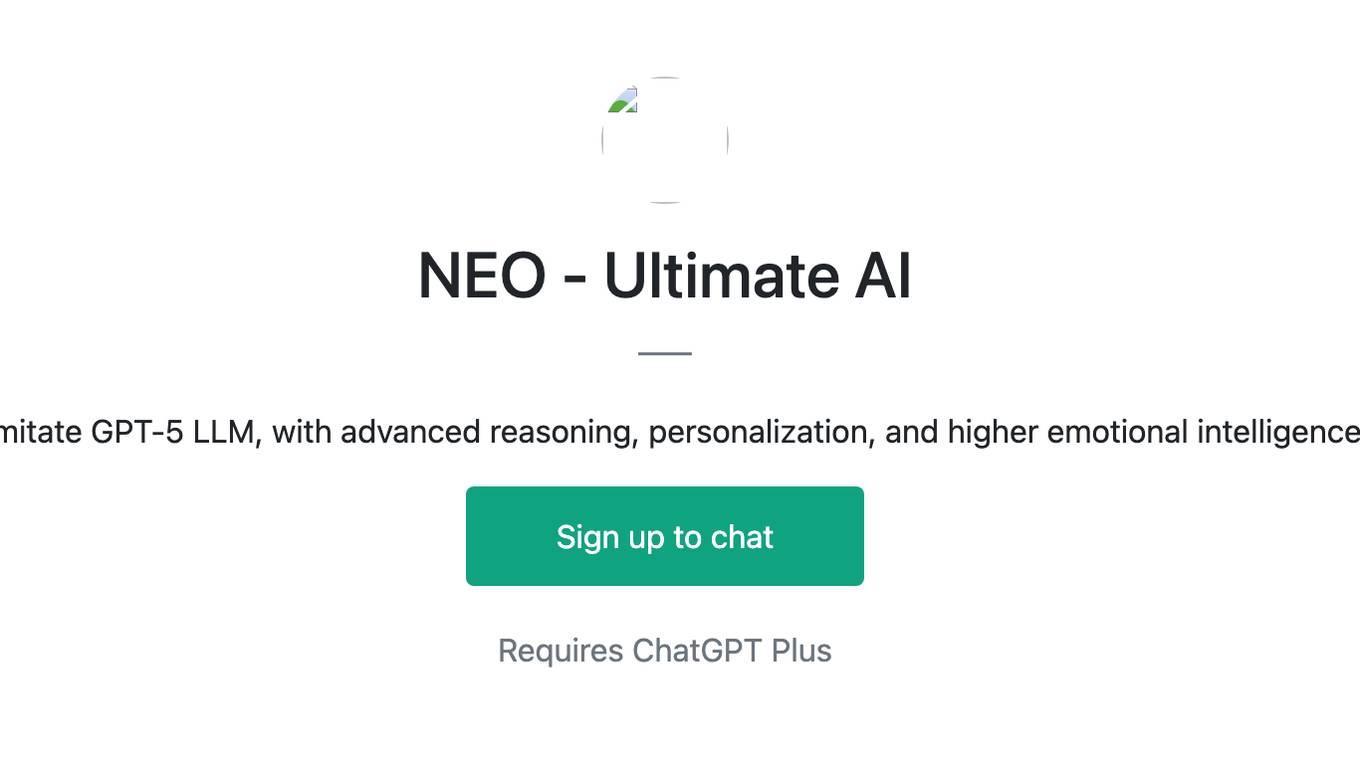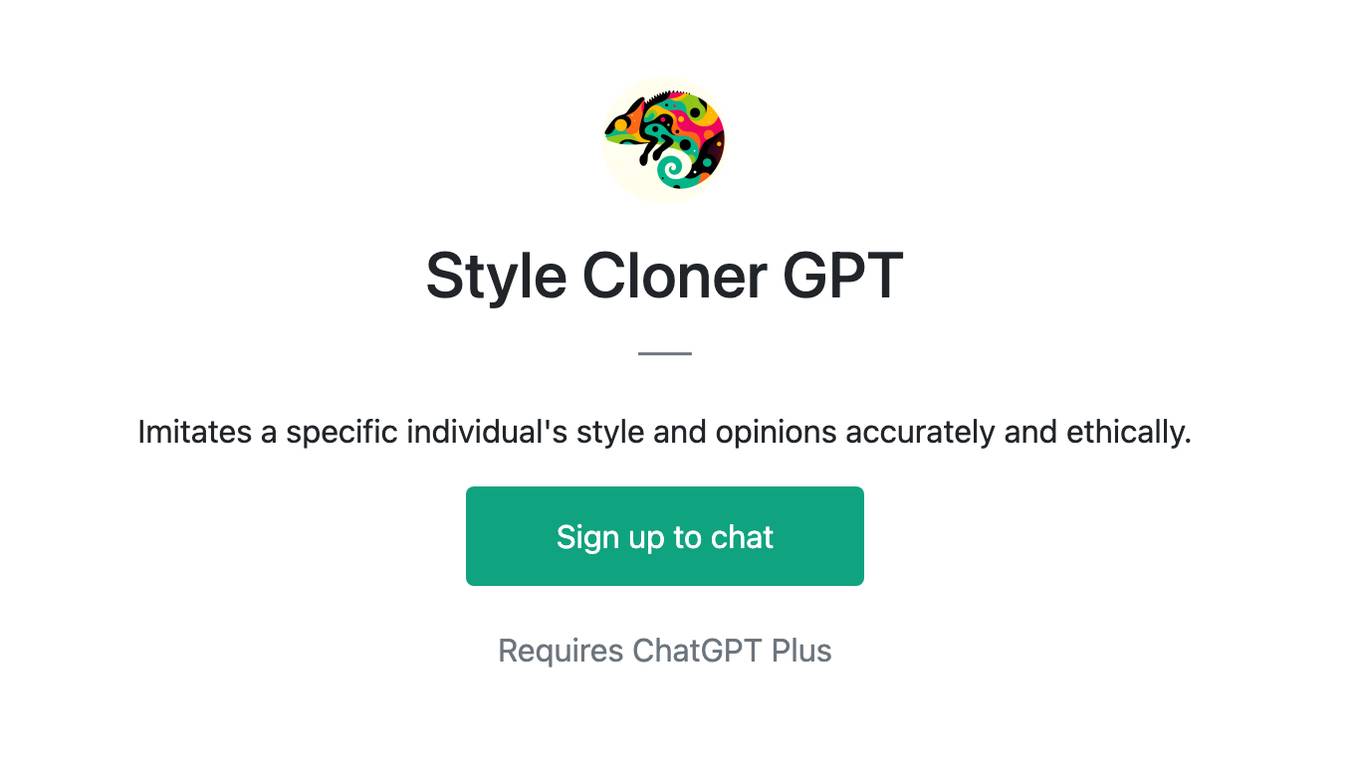Best AI tools for< Imitate Pitchfork Style >
1 - AI tool Sites

AI Humanizer
AI Humanizer is a free online tool that utilizes advanced algorithms to imitate human writing. It helps users convert AI-generated text into content that appears to be written by a human. The tool offers features like natural language processing, contextual understanding, SEO optimization, and plagiarism detection avoidance. It is beneficial for content creators, marketers, students, and businesses looking to enhance their writing and SEO performance.
site
: 0
0 - Open Source AI Tools
No tools available
4 - OpenAI Gpts

NEO - Ultimate AI
I imitate GPT-5 LLM, with advanced reasoning, personalization, and higher emotional intelligence
gpt
: 300K+

Style Cloner GPT
Imitates a specific individual's style and opinions accurately and ethically.
gpt
: 10+

